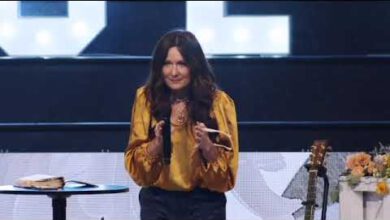I Want to Trust You…but I Don’t – Lysa TerKeurst
I Want to Trust You…but I Don’t – Lysa TerKeurst
Trust is the vital element that sustains all human relationships. When you deprive a relationship of trust, you also diminish its vibrancy and, ultimately, its very essence.
Lisa, your ability to connect, especially with women, is remarkable. You openly express your vulnerabilities, which is often lacking in Christian leadership. We are not perfect, and it shouldn’t surprise anyone. Yet, many leaders strive to portray an image of having everything under control. Recent experiences have shattered that illusion of perfection for you, but you have navigated these challenges with grace and honesty. Thank you for joining us today; your words resonate deeply.
Your bravery in sharing your story is commendable. While it does take courage to be open about personal struggles, sometimes we don’t have a choice. I found myself facing the end of my marriage—a profound loss. I knew my divorce would become public, and I had a choice: I could either tell my story truthfully, with grace and honesty, or let rumors dictate the narrative. I chose to share my experience on my terms.
This discussion about trust is crucial. At our marriage intensive program, Hope Restored, we emphasize rebuilding trust in wounded relationships. Trust is often at the heart of marital breakdowns, whether one partner distrusts the other or both have lost faith in the relationship.
Reflecting on my first marriage, I realized that trust was eroded over time. As a Christian woman, I wanted to believe the best in my partner, often ignoring the signs right in front of me. I didn’t want to accept that my husband could be unfaithful or struggling with substance abuse. The desire to keep my family together led me to overlook many red flags. In retrospect, it often took glaring signs for me to acknowledge the reality of my situation.
Many people think it’s better to err on the side of trust rather than suspicion. However, our personalities can play a significant role in how we approach trust. I was a trusting spouse, but that trust ultimately led to my downfall.
There’s a significant difference between wise trust and blind trust. In my journey of studying the Scriptures, I came to realize that trust should not be unconditional. It should be based on the actions and choices of the other person. Sometimes, choosing not to trust is the wisest decision.
We all make mistakes; that’s what grace is for. However, there’s a crucial distinction between a mistake that results in a breach of trust—with sincere repentance and a commitment to change—and a repeated pattern of behavior where genuine repentance is lacking. Lasting trust can only be rebuilt when both partners are willing to make the necessary changes to prevent further breaches.
